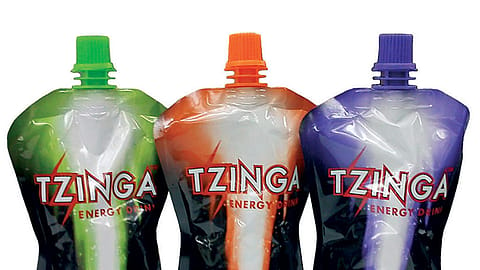Punchy pricing
Hector Beverages is making inroads into the energy drink market with Tzinga.

A year-old energy drink created by an Indian startup is taking on global brands such as Red Bull. Its scoring point: pricing. Tzinga sells at Rs 20 for 200 ml against Red Bull’s Rs 95 for 250 ml.
Traditionally, sportspersons have been the main buyers of energy drinks, but unlike in the West, the number of those who play competitively here after their teens drops sharply, as education and career take priority. So does an energy drink for the 18 to 35 age group have a future?
It does, says Neeraj Kakkar, founder and CEO of Gurgaon-based Hector Beverages, the creator of Tzinga, which he calls a “functional drink”. According to Kakkar, such drinks provide “mental stimulation”. So Tzinga, like the others here, is aimed at college students, office workers with late-night projects, and even construction workers.
Private equity firms Catamaran Investment, founded by N.R. Narayana Murthy, and Footprint Ventures, have together so far committed Rs 15 crore to the venture.
Although Hector Beverages did not disclose figures on revenue and all-India sales, it claims Tzinga sells up to 4,000 units at the Indian Institute of Technology Delhi and 250,000 in Bangalore monthly.
Euromonitor pegs the functional drinks business in India at Rs 226 crore. And Hector Beverages has only scratched the surface of a market of nearly 40 million buyers.
Beverage startups typically focus on marketing and branding, and buy readymade flavours. But Hector Beverages worked with European firms to formulate its three flavours: Lemon Mint, Tropical Trip, and Mango Strawberry.
Kakkar, 38, and COO Suhas Misra, 33, drew on their experience in supply chain management (Kakkar spent nearly eight years with Hindustan Coca-Cola Beverages, Coke’s Indian subsidiary) to source raw materials. Hector Beverages gets fruit concentrates from Denmark, energy ingredients such as taurine and guarana from Holland and Brazil, flavours from Germany, and packaging materials from China.
High production costs are offset by savings on packaging—a plastic pouch with a spout—which is 60% cheaper than bottles.
Besides rivals, the cola majors are watching Tzinga with interest, sensing potential rich pickings in this developing market.